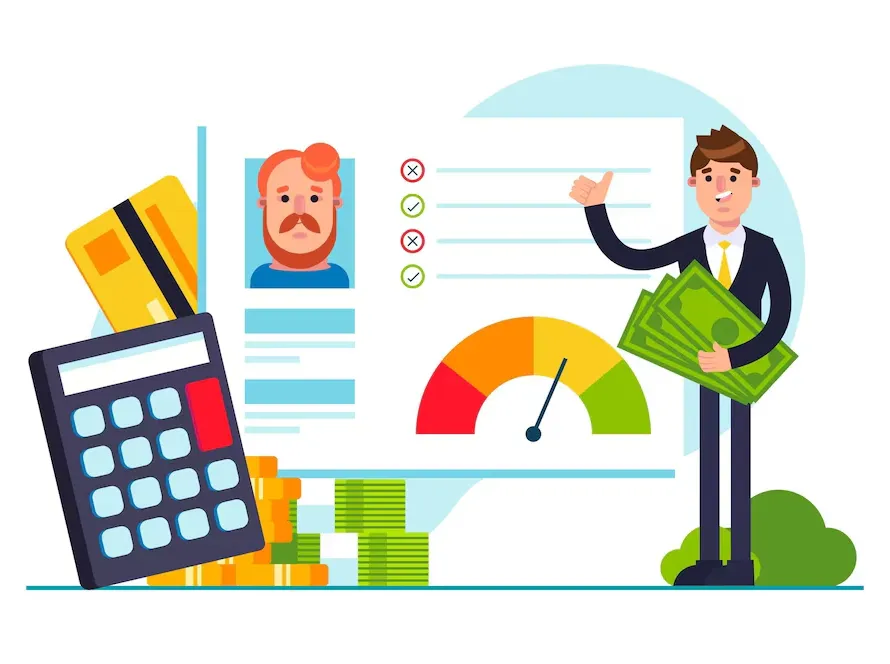Dealing with high-interest personal loans can be overwhelming, especially when monthly payments start to pile up. For individuals struggling to meet their loan obligations, loan settlement may seem like an attractive way out. But is it the right option for high-interest personal loans? In this blog, we’ll explore what loan settlement is, its pros and cons, and whether it’s the best solution for high-interest debt.
What is Loan Settlement?
Loan settlement is an agreement between a borrower and a lender where the borrower pays a portion of the total outstanding loan, and the lender forgives the rest. It’s typically used as a last resort when a borrower is unable to repay the full loan amount. Loan settlement helps avoid a default and is often pursued when the borrower’s financial situation has worsened, making it impossible to continue with regular payments on high-interest personal loans.
Why High-Interest Loans Cause Problems
High-interest personal loans, such as credit card debt or short-term loans, can become unmanageable over time. Here are some of the main reasons why borrowers fall into debt traps with high interest personal loans:
- Rising monthly payments: As interest accrues, the borrower may struggle to keep up with payments, especially if their financial situation changes unexpectedly.
- Minimal principal reduction: In many high interest personal loans, payments primarily go toward interest, meaning the principal balance barely decreases over time.
- Debt snowball effect: Borrowers may take out additional loans to pay off existing debts, leading to a vicious cycle of borrowing and repayment.
Is Loan Settlement a Good Option for High-Interest Personal Loans?
When dealing with high-interest personal loans, loan settlement can offer relief, but it comes with trade-offs. Let’s take a look at the settlement pros and cons to determine whether it’s the right choice for you.
Understanding the settlement pros and cons can help you make an informed decision about whether loan settlement aligns with your financial goals and current situation.
Pros of Loan Settlement
1. Immediate Debt Relief
Loan settlement offers immediate relief by reducing your total outstanding loan amount. If you’re drowning in debt and unable to keep up with payments on high interest personal loans, settling for a lower amount can prevent your financial situation from worsening. It’s also important to consider the loan settlement impact on your financial future when weighing this option.
2. Avoiding Default or Legal Action
When you default on high-interest personal loans, creditors may take legal action against you, including filing a lawsuit or seizing your assets. Loan settlement helps you avoid these consequences, offering a more amicable resolution between you and the lender.
3. One-Time Payment Solution
Loan settlement typically involves a lump-sum payment, which means you can pay off the settled amount in one go and close the loan. This can be particularly beneficial if you’ve recently come into some money and want to clear the debt on your high-interest personal loans.
4. Reduced Financial Stress
High-interest personal loans often cause financial and emotional stress. By settling the loan, you free yourself from the burden of ongoing payments, high interest rates, and the constant worry of missed EMIs.
Cons of Loan Settlement
1. Negative Impact on Your Credit Score
While loan settlement helps you clear debt, it significantly impacts your credit score. The settled loan is reported to credit bureaus as “settled” rather than “paid in full,” indicating that you didn’t repay the entire loan. This can reduce your credit score by up to 100 points or more, and the settlement status remains on your credit report for up to seven years.
2. Difficulty in Obtaining Future Credit
After a loan settlement, lenders may consider you a high-risk borrower, which makes it difficult to secure future loans or credit cards. Even if you do qualify for credit, it may come with higher interest rates, lower loan amounts, or stricter terms, especially if you had high-interest personal loans.
3. Potential Tax Implications
In some cases, the forgiven debt after a loan settlement may be considered taxable income. While this depends on your country’s tax laws, it’s something to keep in mind when negotiating a settlement. You may need to factor in any potential tax liability before agreeing to settle your high-interest personal loans.
4. Not Always Available for High-Interest Loans
Lenders may not always agree to settle high-interest personal loans, especially if they believe the borrower has the capacity to repay the full amount. Loan negotiation tips can help increase the chances of securing a favorable settlement agreement.
Conclusion: Is Loan Settlement Right for You?
For individuals facing financial hardship, settling high-interest personal loans can be a useful tool, but it’s not a decision to be taken lightly. While it offers immediate relief from high-interest personal loans, the loan settlement impact on your credit score and ability to secure future credit can be severe. Before choosing settlement, consider all alternative options and seek professional advice to ensure you make the right choice for your financial future.



